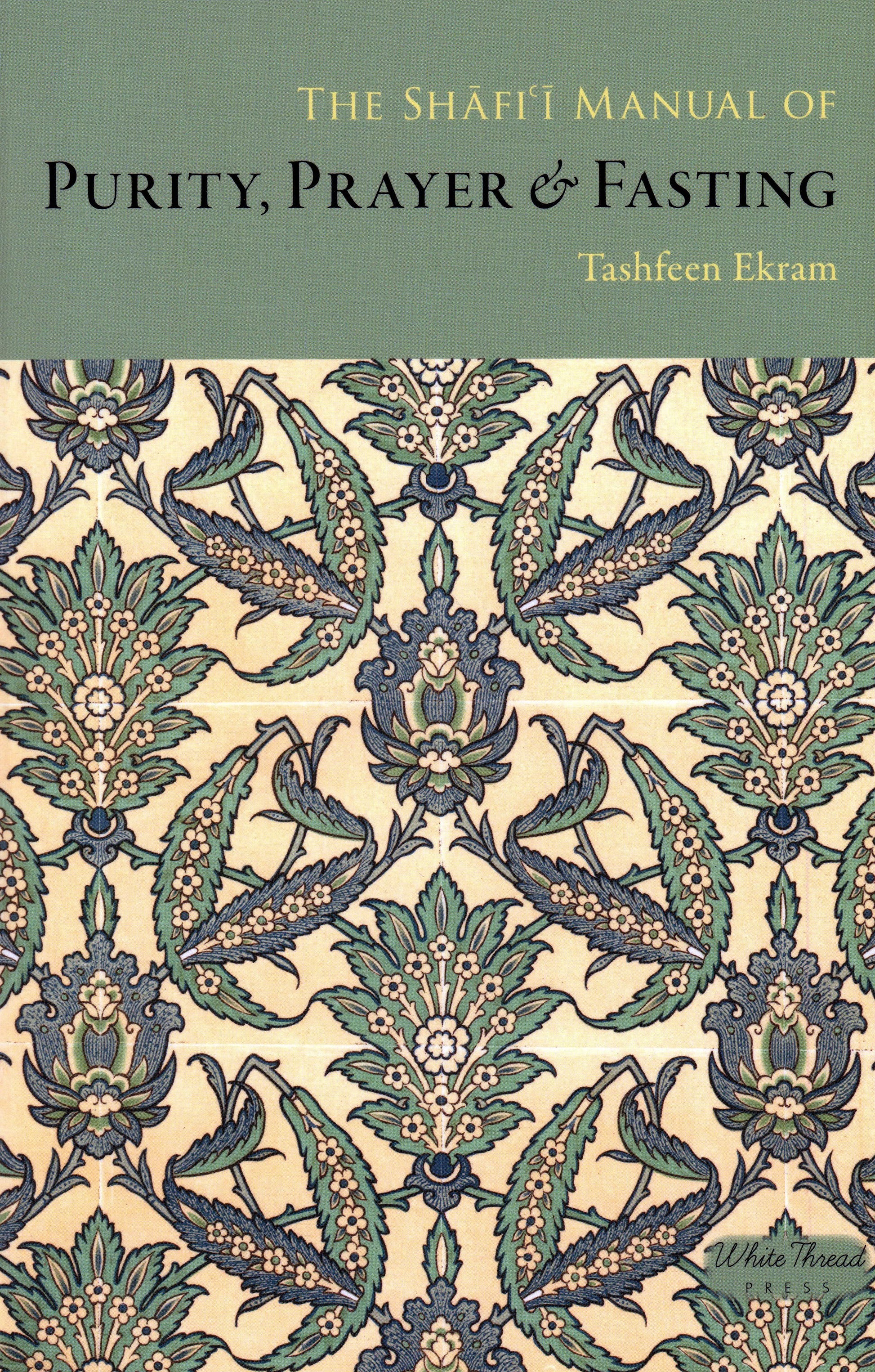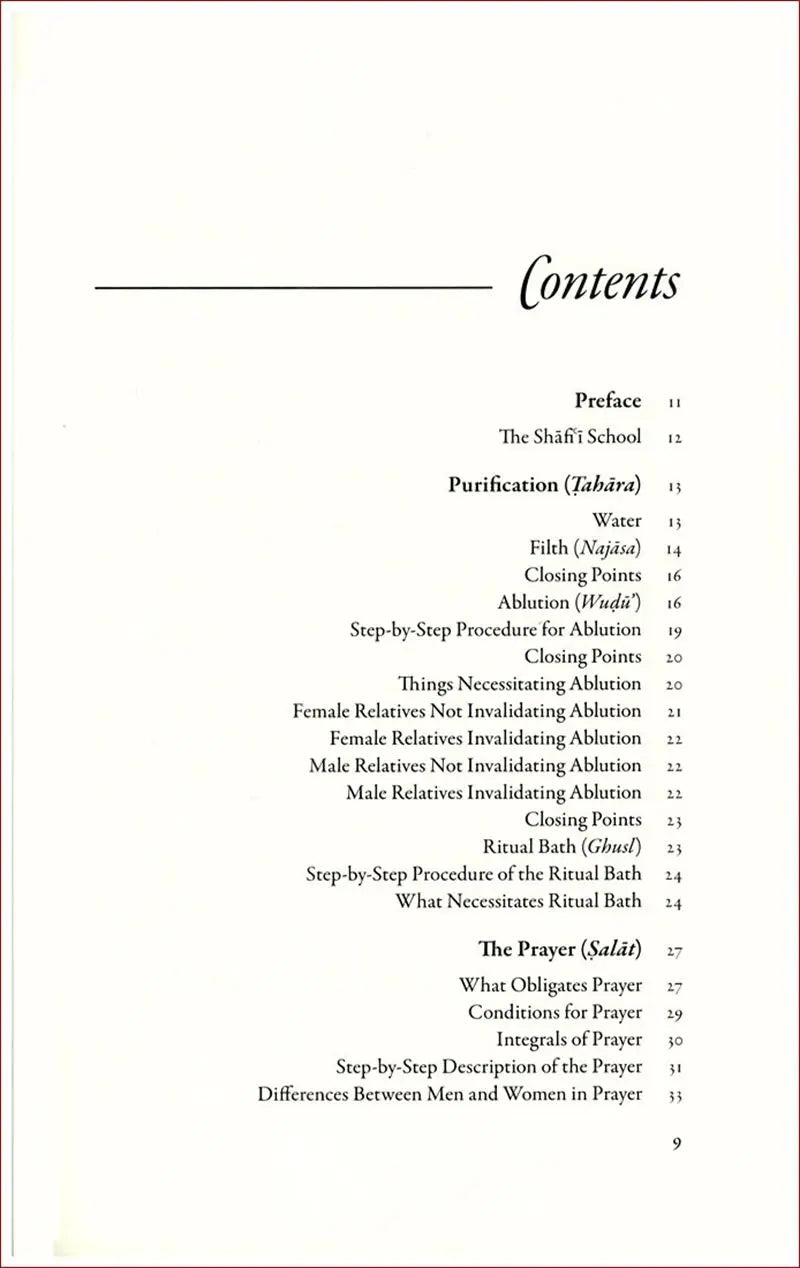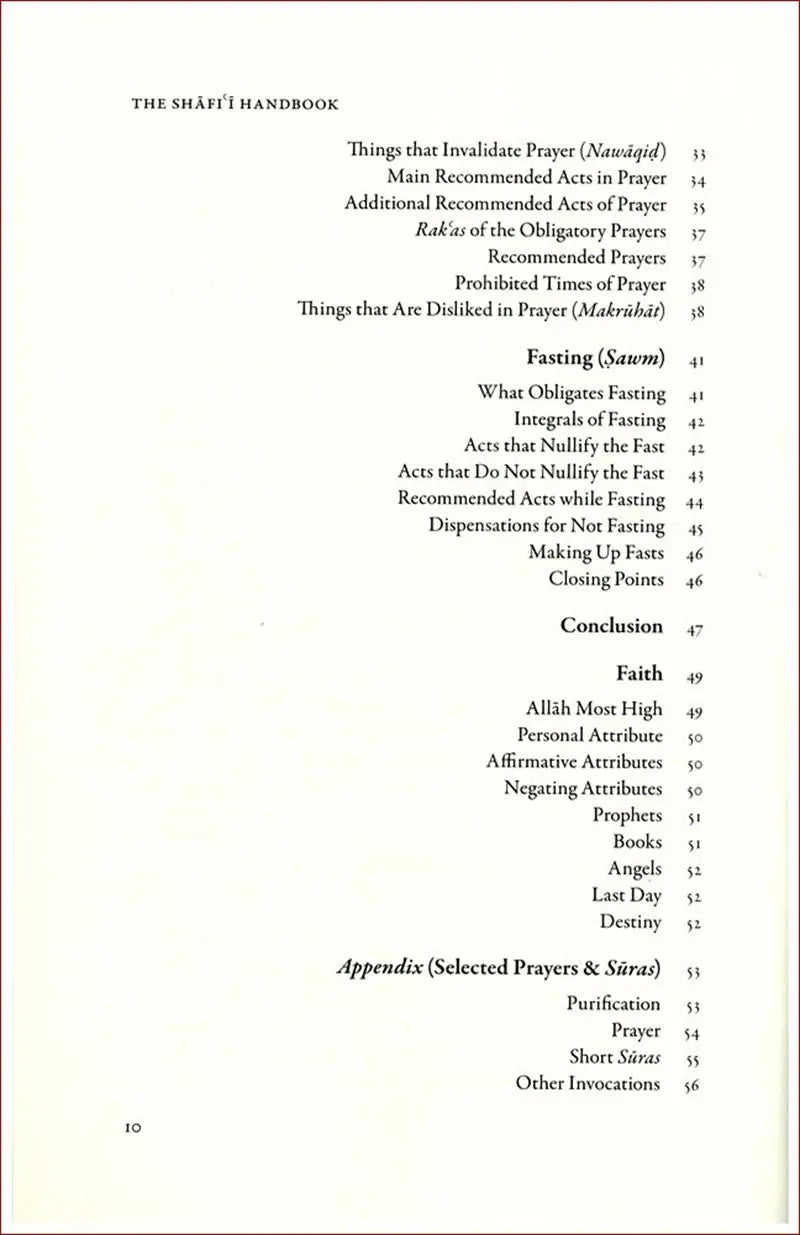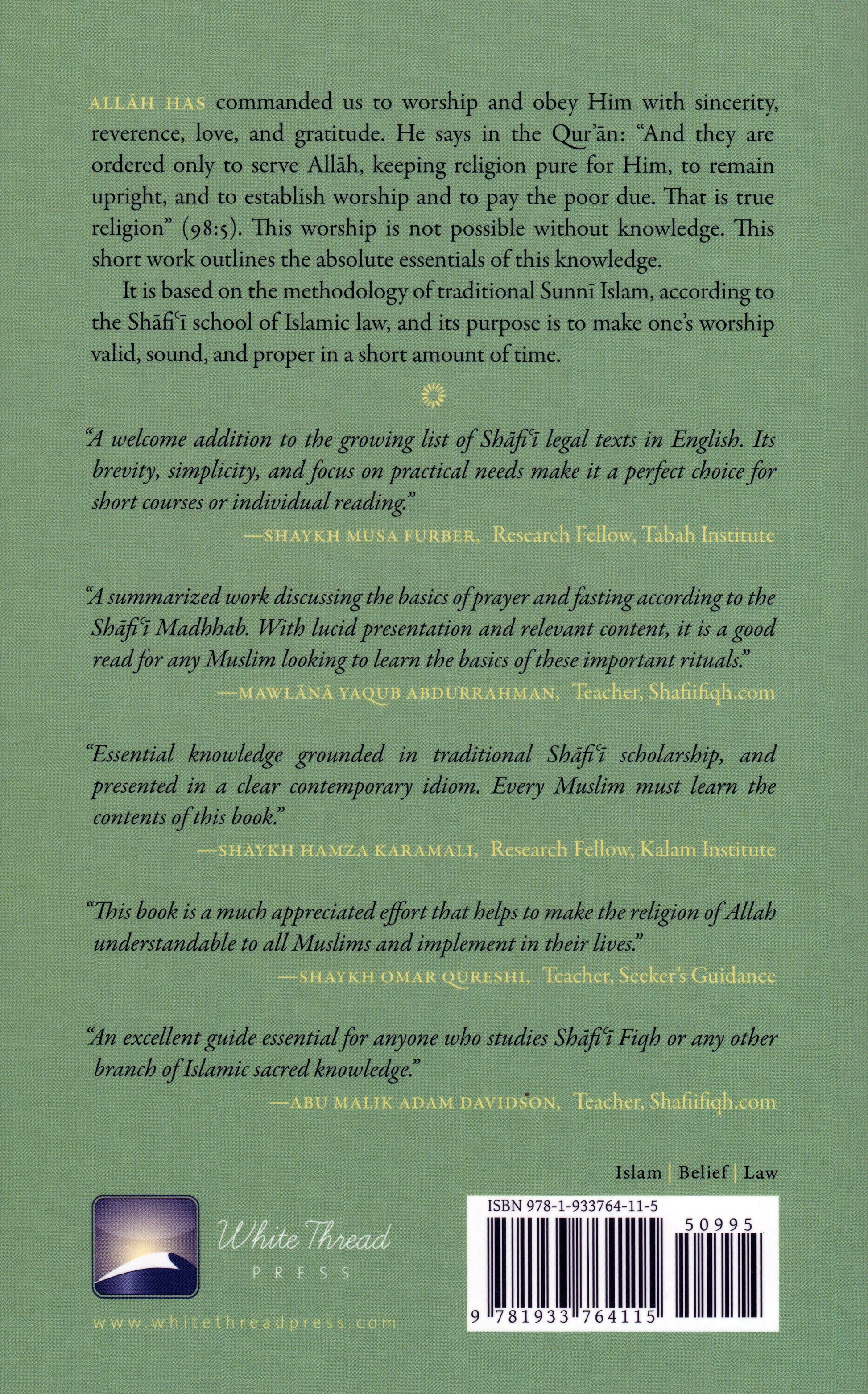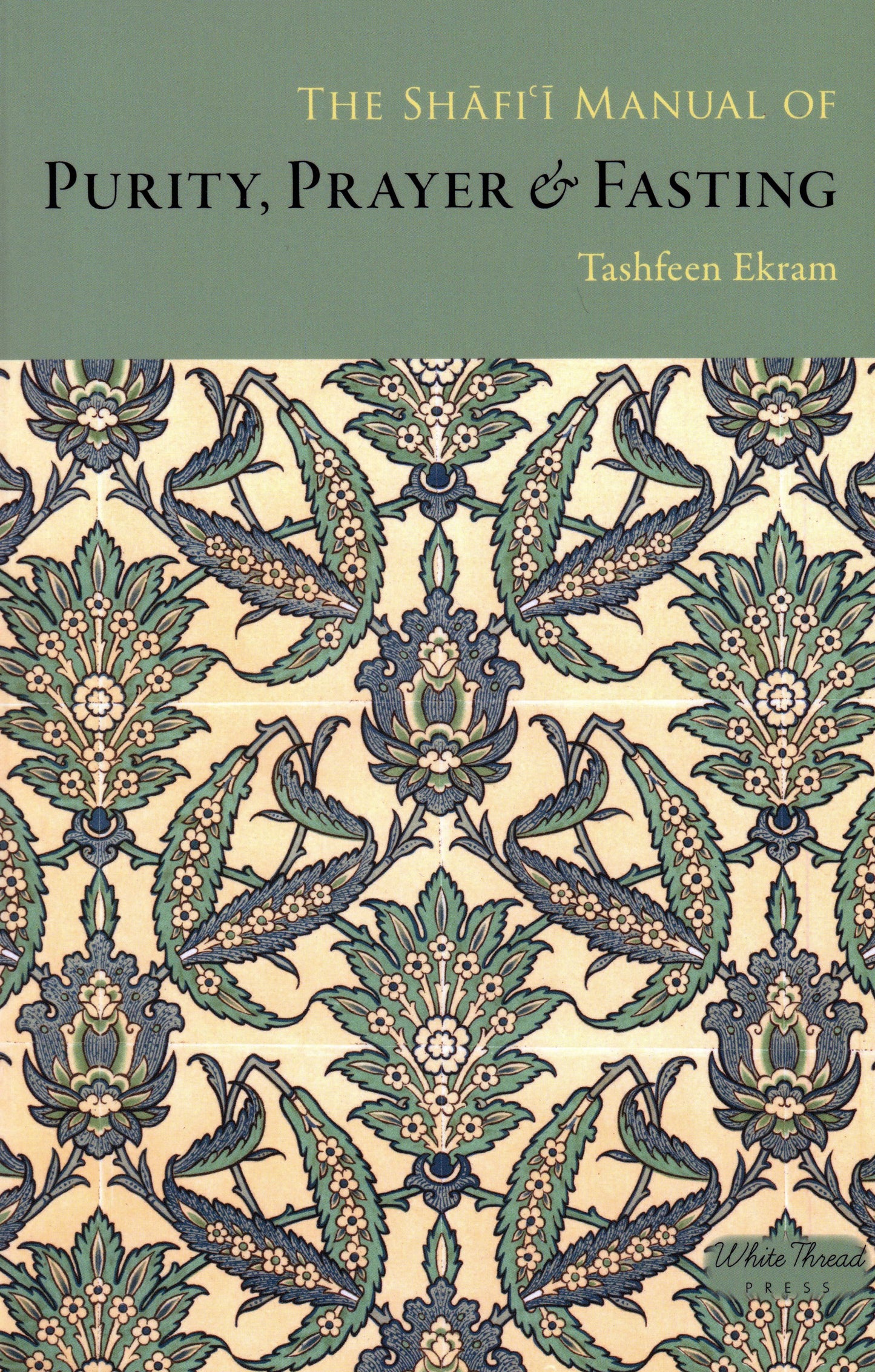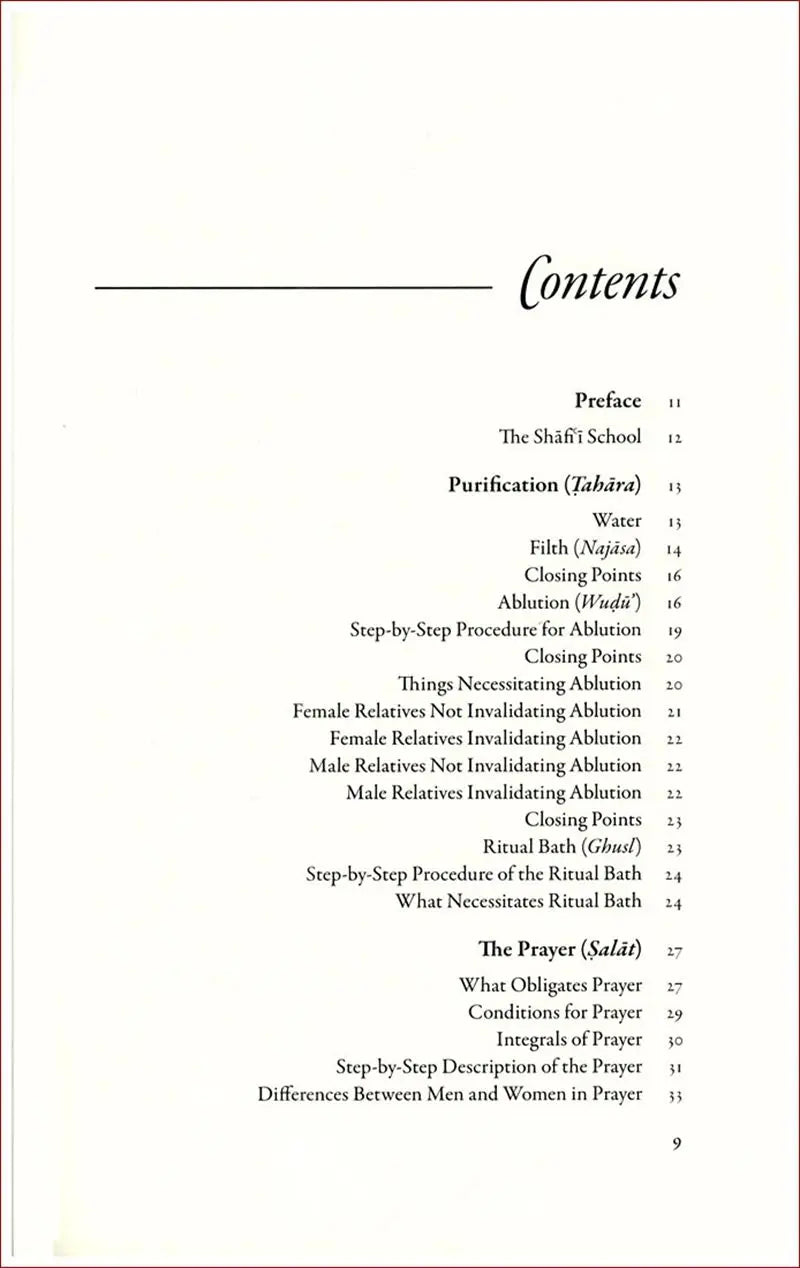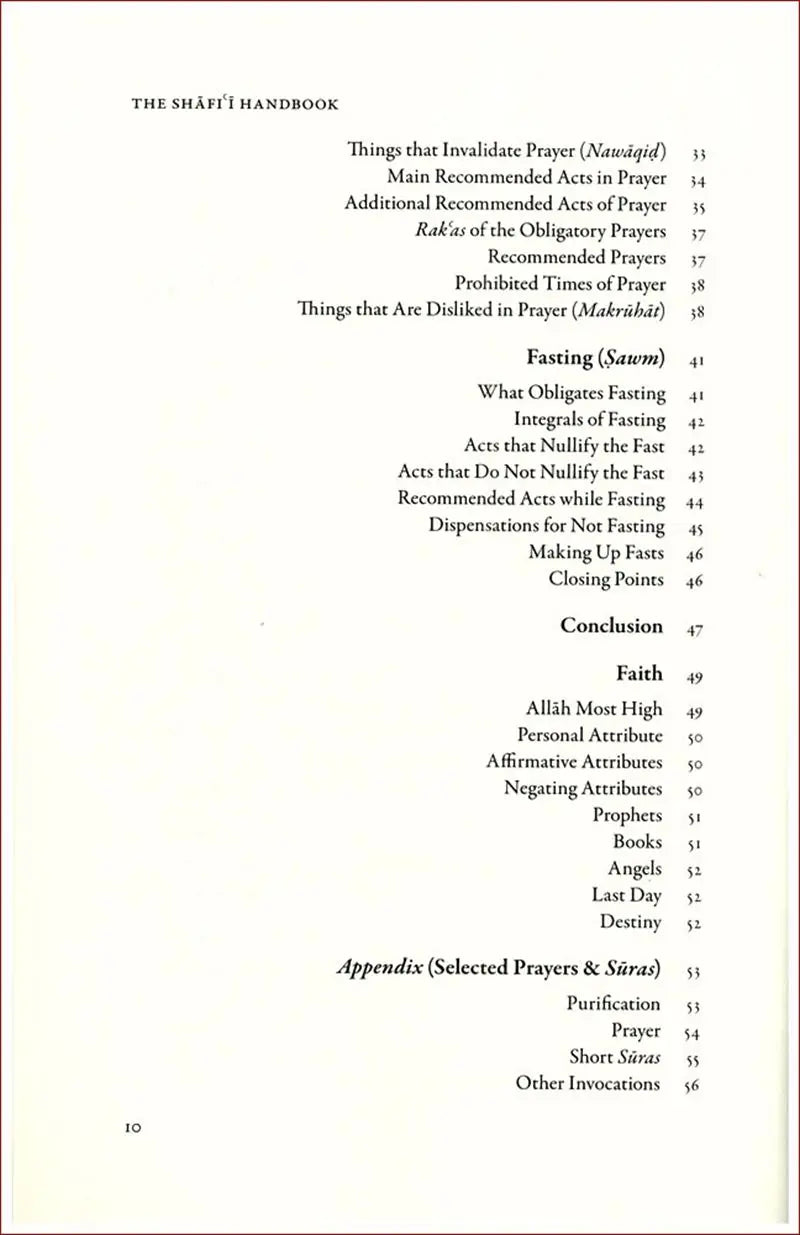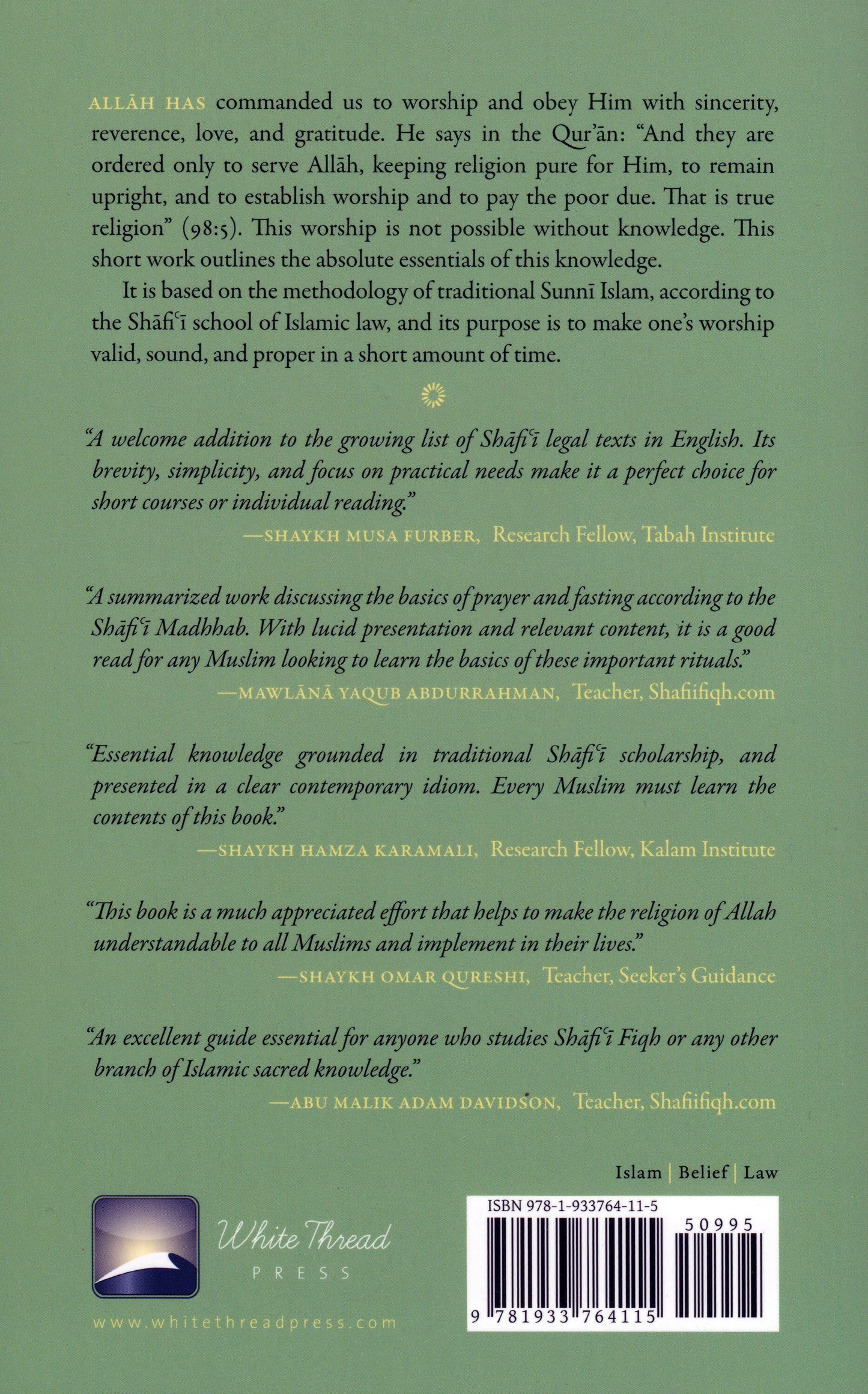About The Book
Allah has commanded us to worship and obey Him with sincerity, reverence, love, and gratitude. He says in the Qur’an:
“And they are ordered only to serve Allah, keeping religion pure for Him, to remain upright, and to establish worship and to pay the poor due. That is true religion.” - (Qur'an 98:5)
This worship is not possible without knowledge. This short work outlines the absolute essentials of this knowledge. It is based on the methodology of traditional Sunni Islam, according to the Shafi’i school of Islamic law, and its purpose is to make one’s worship valid, sound, and proper in a short amount of time.
About Imam Shafi'i
Abu 'Abdillah Muhammad ibn Idris al-Shafi‘i was a Muslim jurist, who lived from (767 — 820 CE / 150 — 204 AH). Often referred to as 'Shaykh al-Islam' he was one of the four great Imams of which a legacy on juridical matters and teaching eventually led to the Shafi'i school of Fiqh (or Madhhab) named after him. Hence he is often called Imam al-Shafi‘i.
Al-Shafi’i developed the science of Fiqh unifying 'revealed sources' - the Quran and Hadith - with human reasoning to provide a basis in law. With this systematization of shari'a he provided a legacy of unity for all Muslims and forestalled the development of independent, regionally based legal systems. The four Sunni legal’s schools or Madhhab- keep their traditions within the framework that Shafi'i established.
Al-Shafi’i gives his name to one of these legal schools Shafi'i Fiqh - the Shafi'i school - which is followed in many different places in the Islamic world: Indonesia, Malaysia, Egypt, Somalia, Yemen as well as Sri Lanka and southern parts of India.
Saladin built a madrassa and a shrine on the site of his tomb. Saladin's brother Afdal built a mausoleum for him in 1211 after the defeat of the Fatamids. It remains a site where people petition for justice.
show more
